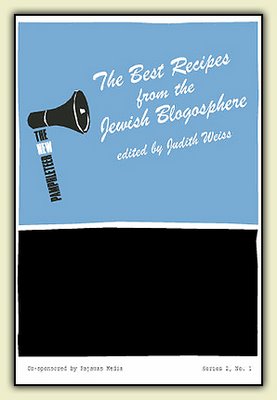Photo by Tanty (Stavanger Daily Photo)
At Oxford, on pastoral lawns,
Fergus wanted to bugger the swans.
Said the loyal hall porter,
O, please, take my daughter!
Them swans is reserved for the dons.
At our recent Aubrey/Maturin dinner (which featured, as an entrée, a fine roast goose), the topic of Waterfowl as Food was discussed at length.
Our goose was capital. Capital, as in “excellent,” not as in “a capital offense.” Although, considering what it was likely doing to our arteries, we may indeed have been flirting with the “short, sharp shock” of the executioner’s axe. Goose is a rich, dark-fleshed bird, much like a giant economy-size duck. Our bird started out as an eleven-pounder, out of which I was able to extract a pure liter of golden, glistening schmaltz. But the meat was tender and delicious, especially when buried in lashings of hot giblet gravy.
As I described it to Houston Steve, it was the kind of meat that “confited” itself, confit being a dish of bird legs (usually duck), cured, cooked slowly, and preserved in Bird-Schmaltz. Pretty much the whole goose is confit after you roast it in a moderate oven.
We’re also quite familiar with duck, an item of poultry much beloved by the Momma d’Elisson. The story I had heard was that my mother had been enjoying a duck dinner when the contractions that announced my imminent arrival began to kick in. She never finished that duck, but the event may, in utero, have instilled in me a desire to finish as many duck dinners as possible on her behalf.
But what about swan, I asked? Sure, they’re beautiful (albeit famously evil-tempered) - but are they edible? Something to serve, perhaps, at a future Aubrey/Maturin event?
People used to eat swans. At least, you would think so, based on the existence of a verse in Orff’s opera “Carmina Burana”: Olim Lacus Colueram, AKA The Ballad of the Roasted Swan. It is perhaps the funniest part of the opera - a dead swan complaining about the Current State of Affairs as he roasts on a spit.
Olim lacus colueram,
Olim pulcher exstiteram,
Dum cygnus ego fueram.
Miser, miser!
Modo niger
Et ustus fortiter!
Girat, regirat garcifer;
Me rogus urit fortiter;
Propinat me nunc dapifer.
Miser, miser!
Modo niger
Et ustus fortiter!
Nunc in scutella iaceo,
Et volitare nequeo;
Dentes frendentes video.
Miser, miser!
Modo niger
Et ustus fortiter!
[Once I had dwelt on lakes, once I had been beautiful, when I was a swan.
Poor wretch! Now black and well roasted!
The cook turns me back and forth; I am roasted to a turn on my pyre; now the waiter serves me.
Poor wretch! Now black and well roasted!
Now I lie on the dish, and I cannot fly; I see the gnashing teeth.
Poor wretch! Now black and well roasted!]
But that’s opera, Doc, and it’s about Europeans, who will, evidently, eat any damn thing.
A bit of instant Online Research, courtesy of Houston Steve and Gee, helped answer the question. According to a post at The Old Foodie, swan, while impressive-looking enough to be a banquet centerpiece and carrying a certain amount of prestige, also carries a flavor “said to be like ‘fishy mutton.’”
Hmmm. Fishy mutton. I could maybe work with that, but I suspect most other folks would not. Other writers describe it as “tough and stringy” or “tough and fishy” - even less appetizing (if that’s possible).
There are a few logistical and legal hurdles as well. In Great Britain, for example, all mute swans are property of the Crown, thanks to a law dating back to the 12th-century that is still zealously enforced.
But let’s assume you can score a swan legally. It’s a big bird. Probably bigger than a peacock, once you defeather it. How the hell do you go about cooking it?
Can you grind the meat up and make a toroidal sausage out of it? A Cygnet Ring?
Well, on the advice of The Old Foodie, let’s look at Le Ménagier de Paris, a late-14th-century manuscript that includes a chapter on food and cooking that includes 197 pages of recipes. [You can read it in the original here; an English translation is here.]
SWAN. Pluck like a chicken or goose, scald, or boil; spit, skewer in four places, and roast with all its feet and beak, and leave the head unplucked; and eat with yellow pepper.
Item, if you wish, it may be gilded.
Item, when you kill it, you should split its head down to the shoulders.
Item, sometimes they are skinned and reclothed.
RECLOTHED SWAN in its skin with all the feathers. Take it and split it between the shoulders, and cut it along the stomach: then take off the skin from the neck cut at the shoulders, holding the body by the feet; then put it on the spit, and skewer it and gild it. And when it is cooked, it must be reclothed in its skin, and let the neck be nice and straight or flat; and let it be eaten with yellow pepper.
Sounds like a perfect centerpiece for a wedding or Bar Mitzvah! Maybe brining it would solve the “tough and fishy” issues. Hmmm...










No comments:
Post a Comment